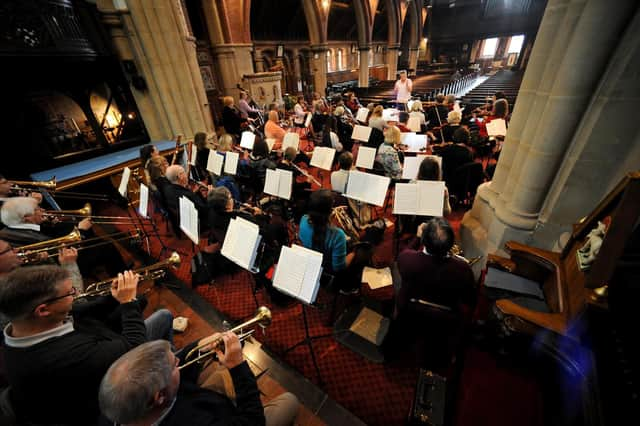Eastbourne Symphony Orchestra competition lines up its finalists


The competition had to be cancelled last year, but returned strongly with performances of a very high standard. The judges had to deliberate long and hard into the evening in choosing between many outstanding performances. This is a concerto competition and the judges were looking for competitors who performed programmes that demonstrated their soloistic virtuosity and musicality, as well as the ability to work well with their accompanist. They also took into account the ability to perform a contrasting programme both in style and period.
The final will take place on Sunday, February 13 at 2pm in the Birley Centre, Carlisle Road, Eastbourne BN21 4EF.
The finalists are:
Advertisement
Hide AdAdvertisement
Hide AdAnna Crawford, cello, age 21, is currently at the RCM. Among many other accomplishments she has been part of the European Youth Orchestra since 2020.
Jelena Horvat, violin, (18), is from Serbia and from a family of professional musicians; currently at the Yehudi Menuhin School.
Lon Fon Law, double bass (21) is currently at the Royal Academy of Music. He is from Hong Kong where he came first in a Hong Kong Schools Music Festival.
Daniel Pengelly, flute (17) is currently in the sixth form at Chetham’s Manchester. He is a keen composer wants to be a solo flautist or film composer “or ideally both.”
Advertisement
Hide AdAdvertisement
Hide AdSharon Zhou, violin (17) is currently at Junior Guildhall. She wants to pursue conducting as well as performing the violin.
Graham Jones, chairman of the judges and ESO musical director, said: “We were very pleased. All of these youngsters are really quite determined at the moment. They have had a very tough time.
“It is interesting looking through their biographies that there is very little for them for the last two years and that makes a big difference. For these youngsters, the ages of 18 and 19 and 20 are very important formative years in their musical careers.
“And then you think how have they been taught during this time. A lot of their teaching will have been done online and they will have had very few opportunities for competitions.
Advertisement
Hide AdAdvertisement
Hide Ad“But the talent was obviously there. I always find it very humbling when I’m sitting there listening to them in terms of the huge array of talent and the huge array of skills.
“The judges have all been together for several years and we get to exchange our ideas when we are discussing the performances. Usually after talking things through and then perhaps talking things through again we start to get a bit clearer in our ideas. We had a very long discussion. You listen to the first candidate and the first candidate was very good but you can’t really get a picture until you have heard the others.”
As for the final: “Every performer has got there on their merit on that performance. It is what they do on the day that counts and it is important therefore that when we start listening to the finalists, we start with a clean sheet for them. Nobody is going to refer to their comments from the first round. It will be what happens on the day and I suspect the performers will be much more geared up to the performance. When it comes to the final there is always a buzz about it and hopefully they will be able to give their very best.
“This was the first time we have been able to do this since 2020 and it was great to be back. And as I say, you really feel for these young people whose formative time has been really difficult.”
Advertisement
Hide AdAdvertisement
Hide Ad“But actually an interesting feature of this final coming up that it is the youngest set of finalists, I think, that we have ever had.
It is the first time that we have put two through from the junior competition and three from the senior competition. We’ve got two who are 21 one who is 18 and two who are 17 which is remarkable.”